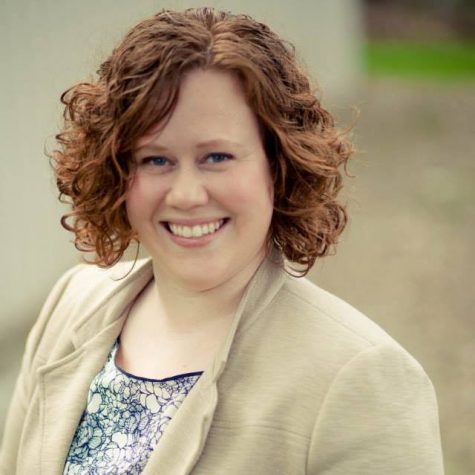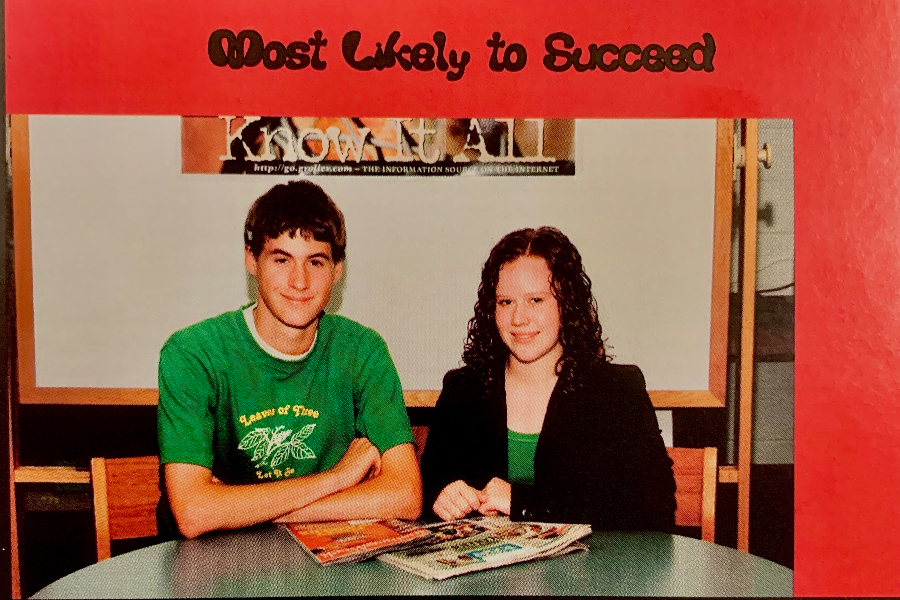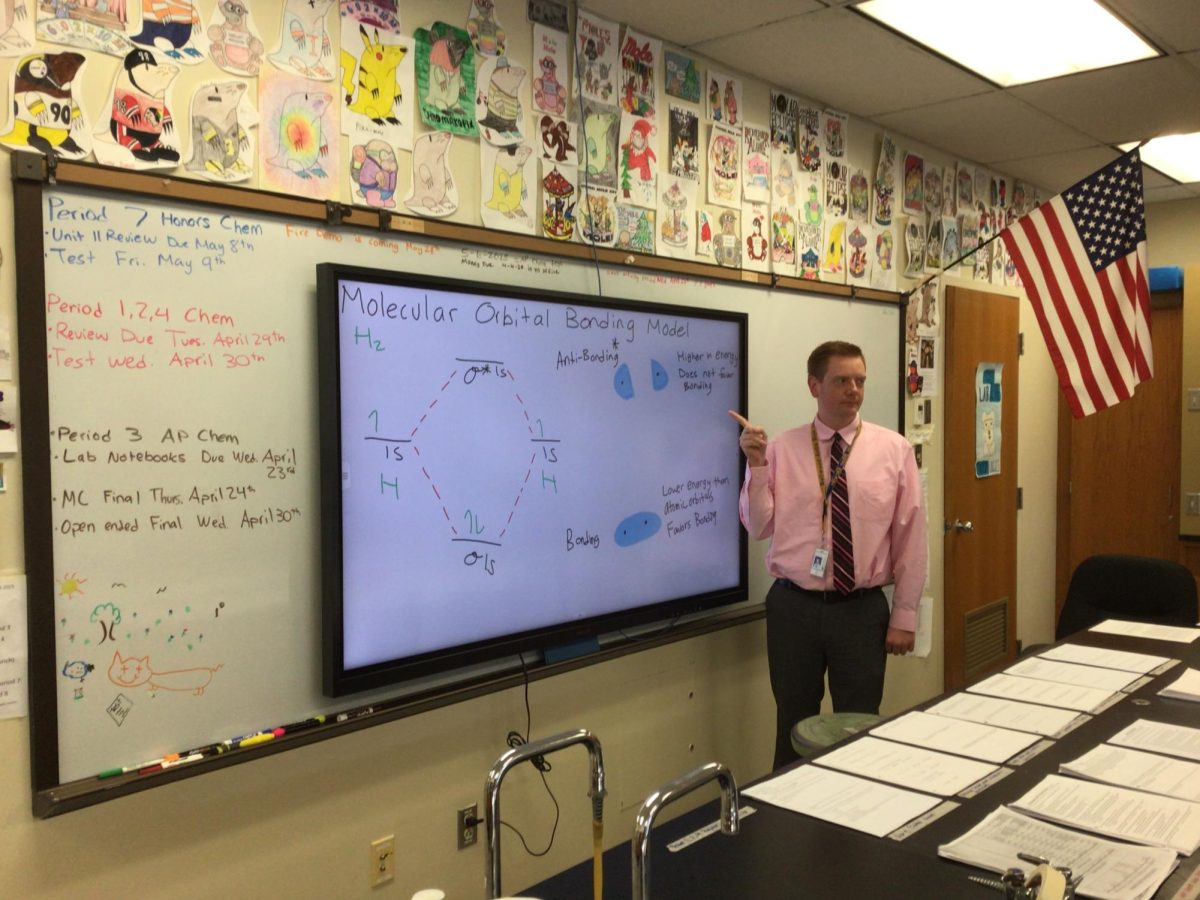FEATURED ALUMNI: Laura Garber
2005 grad has overcome personal issues and addiction to settle into a career in law
Laura Garber (2005) was a high achiever at B-A who went through struggles after high school to deal with the anxiety and depression associated with perfectionism.
December 19, 2019
High school is a huge turning point for many teenagers.
Many students feel that everything has to be figured out right now, and if it’s not, then their life will fall apart.
No one knows this feeling better than Bellwood-Antis alumni Laura Garber, who graduated from Bellwood in 2005 and went on to become a lawyer, passing the bar exam in Pennsylvania, New Jersey, and New York. She is currently an associate at Swartz Campbell LLC in Philadelphia.
Garber’s journey from head of her high school class to alcoholism and depression and then back to a life of clarity and sobriety began with a theme common to student depression.
She was a high school perfectionist.
“I thought (perfectionism) was a great trait about myself,” said Garbe, who was voted Most Likely to Succeed in the 2005 Tuckahoe Yearbook.. “I was also extremely anxious and depressed, but I refused or did not know how to acknowledge those things about myself. I insisted on being involved in a ton of activities, and I loved that aspect of high school.”
Garber’s struggles are nothing new, as an estimated 1 in 3 teens ages 13-18 will experience an anxiety disorder.
Bellwood-Antis High School counselor Mrs. Dani McNelis sees the damaging effects of perfectionism in a lot of students.
“Many high school students have extremely busy schedules between academics, activities, clubs, sports,” said Mrs. McNelis. “Trying to balance all these responsibilities and manage your time effectively can be overwhelming. When that’s combined with extremely high expectations or the perceived ‘need’ to be perfect, it can certainly cause a great amount of stress.”
Garber controlled and ignored her feelings while she was at B-A, creating an outward image of a young woman in control.
Dr. Alice Flarend, Garber’s physics teacher in twelfth grade, said Laura was a wonderful student, and she didn’t notice any warning signs in high school.
However, that image began to fade when she went away to school.
Garber realized that Bellwood was only a tiny part of the world that she now knew.
“College was a rude awakening in two different ways,” she said. “Suddenly I had to study really hard. Secondly, I realized that outside the bubble of BAHS I didn’t know how to make friends. I was extremely lonely a lot during college, so I threw myself into working hard at my studies and multiple part-time jobs at one time so I could pay to apply to law school.”
The stress of life and perfectionism eventually caused Garber to turn to alcohol.

“At first, I thought I was in control, but then I started drinking too much and not being able to stop after a couple drinks,” said Garber. “I liked the way it let me let loose and not have to feel so tightly wound. Eventually after law school, I would drink at home a lot because I was very depressed about not getting a very good job and I was very worried about not making enough money. Alcohol seemed like a very easy coping mechanism.”
While Garber admitted to going to work while drunk at times, her job was never affected because of her drinking. However, she saw changes in her life that she didn’t like. Above all was the feeling she had lost control.
“At some point I started drinking solely to get black out drunk (where the brain stops making memories completely),” Garber said. “I was doing dangerous things like going out at night when I was blackout drunk and only figuring out that I had done so from the evidence of it I would find in the morning.”
Things changed when a trusted boss urged Garber to see a therapist, and eventually a friend encouraged her to go to rehab for necessary help that only a professional could give her. She realized that she had worked so hard to have a good job and a good life, and she didn’t want to just give that up. Garber said her support system is what got her through this tough time.
“One of the common threads among people who are alcoholics and addicts is that they lack community,” she said. “We need our support systems! Seek it out and be that support for other people as well.”
Recovery has been quite a journey for Laura, and she has discovered many important life lessons along the way that a lot of high schoolers can learn something from, including lessons about her own sexuality.
“I want people who are in high school to realize that they do not have to have anything figured out,” said Garber. “I thought I had to know the exact plan for what I was going to do or else my life would fall apart. It’s good to set goals, but we have to be flexible, because life throws curve balls at us all the time.”
Anxiety and depression is at an all time high among teens today, and Garber says, “for anyone who is suffering from anxiety or depression, it is so important to learn coping skills. It is important to learn how to talk about the issues.”
B-A teachers agree. “I see perfectionism to be a great stresser for many students, and it is so important for them to reach out for help when they need it,” Dr. Flarend said.
Mrs. McNelis suggests coping strategies such as making time for yourself, talking to others, focusing on the things you can control, getting enough sleep, and setting realistic expectations, just to name a few.
If there is anything this entire journey of life has taught Garber, it would be that, “you don’t have to have it figured out completely. You can learn coping skills. Stay present. Money isn’t everything. You’ll fail, and when you do, pick yourself up and try again. Life is an amazing journey!”








